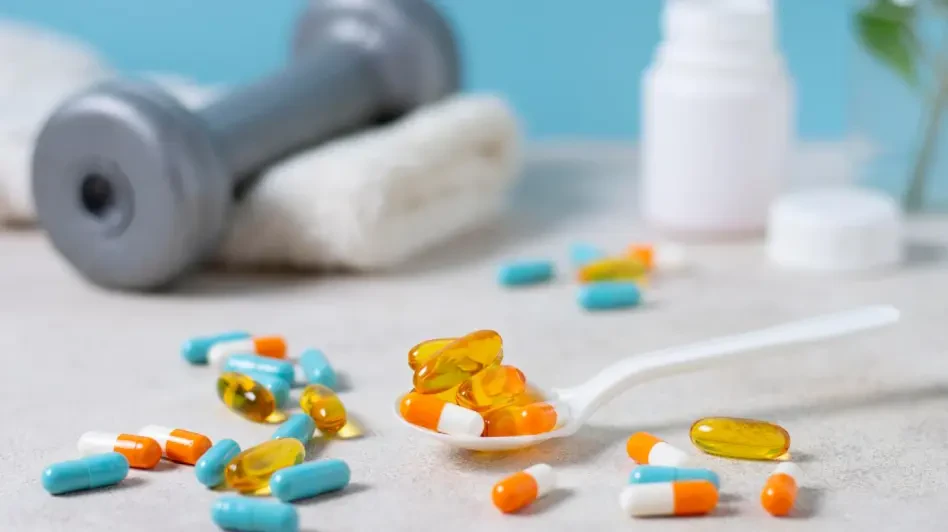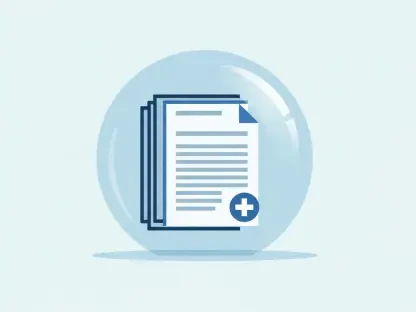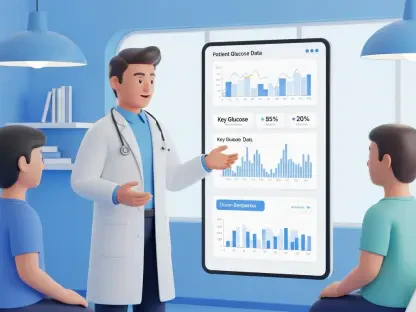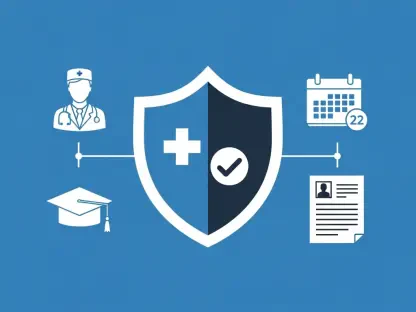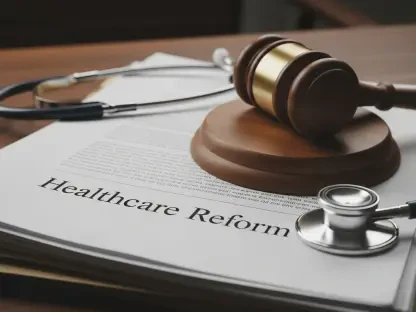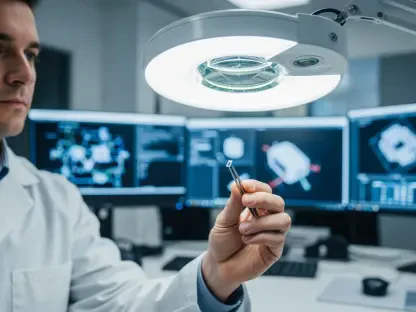Faisal Zain is a pioneer in medical technology, having dedicated years to innovating medical devices for diagnostics and treatment. His deep understanding of the healthcare system provides him with a unique perspective on regulatory and safety challenges. Today, we delve into his insights regarding supplement safety, its impact on consumer health, and potential solutions for a safer health landscape.
Can you describe your experience with the healthcare system prior to your health crisis?
My experience with the healthcare system was quite immersive, spanning two decades in various key roles, including that of an attorney, consultant, and healthcare executive. This journey exposed me to numerous facets of the industry, from hospital board meetings to strategic regulatory projects and cutting-edge health tech initiatives. I believed I was well-versed in how health decisions were crafted, thanks to collaborations with top clinicians and policymakers.
What led you to start taking Ashwagandha?
Ashwagandha was introduced to me by trusted friends and colleagues, some of whom were physicians, and it was marketed as an effective natural remedy for managing stress and improving sleep. Its presence in wellness boutiques and grocery stores suggested a level of consumer trust in its safety and efficacy, prompting me to give it a try.
How did you first realize something was wrong with your health?
It started with severe jaundice and uncharacteristic weight loss, over 40 pounds, followed by extreme insomnia and debilitating lethargy that kept me bedridden for a significant period. Lab results showed alarming liver function markers, which led to the realization that something was seriously amiss, prompting immediate medical investigation.
What were some of the symptoms you experienced due to the supplement?
The symptoms were intense and rapidly escalating; beyond jaundice and weight loss, I experienced insomnia that left me unable to sleep for days. It felt like my body was systematically shutting down, and eventually, I faced the prospect of requiring a liver transplant as my kidneys also began to struggle.
How did your healthcare background influence your approach to dealing with this crisis?
My familiarity with the healthcare system provided a strategic advantage in navigating the medical landscape to find the right specialist. It drove me to seek multiple opinions and approach my condition analytically, knowing where to leverage expertise in diagnostics and treatment to address the situation.
Can you explain the role of the FDA and DSHEA in regulating supplements?
Under the DSHEA, supplements aren’t subject to the rigorous clinical trials that pharmaceuticals undergo. This legislation places the FDA in a reactive role, where it can only intervene after a supplement is proven harmful to consumers, which is more about damage control than prevention.
Why do you think supplements like Ashwagandha are considered safe by many?
The perception of safety comes from a combination of wellness marketing, widespread availability, and the allure of “natural” remedies being harmless. Many assume if a product is readily accessible across different retail platforms, its safety has been thoroughly vetted.
How did you find the specialist who helped you recover?
After consulting with various physicians, I was eventually referred to a specialist who had encountered similar cases. His expertise in liver injuries was crucial in diagnosing the issue accurately, and his treatment plan was a pivotal element in my path to recovery.
What insights did you gain from speaking to various physicians about your condition?
A somber realization was that most physicians I visited did not initially consider supplements as a potential cause for my acute liver failure. There seems to be a diagnostic blind spot regarding over-the-counter products, reflecting a broader need for increased awareness in medical practice.
Why do you believe supplements are often overlooked as a cause of health issues?
Supplements’ casual availability and deeply ingrained perceptions of their benign nature lead many healthcare providers to not prioritize them when diagnosing illnesses. Additionally, the lack of substantial clinical data linking supplements to medical conditions often plays a role in their oversight.
How prevalent is the issue of mislabeled supplements based on your findings?
The prevalence is quite alarming; it’s estimated that up to 50% of supplements are incorrectly labeled, meaning that the ingredients on the label may not match what’s actually inside. This discrepancy represents a significant risk as unlisted toxins and varying potencies can lead to health complications.
What kind of dangers can arise from mislabeling of supplements?
Mislabeled supplements can contain undisclosed substances, including toxic metals and harmful fillers, leading to unpredictable health reactions. Such discrepancies can cause severe metabolic and organ dysfunction, as evidenced by my own experience and increasing reports of liver injuries.
What steps do you think should be taken to improve the oversight of supplements?
Strengthening regulatory oversight is essential. This can be achieved through mandatory independent third-party testing of supplements, ensuring that what’s listed on the label is indeed accurate. Moreover, expanding clinical research to identify the actual effects and risks associated with these products is crucial.
How does the rapid growth of the supplement industry affect regulatory actions?
The explosive market growth significantly outstrips the current regulatory frameworks’ capacity to effectively monitor and manage these products. As the industry expands faster than oversight mechanisms can evolve, many potentially unsafe products remain unchecked on store shelves.
Can you elaborate on the term “biohacking” and its impact on consumer behavior?
Biohacking refers to self-experimentation with biology, often using supplements and lifestyle changes to optimize physical health and performance. This trend, driven by the desire for quick wellness fixes, can lead consumers to experiment without understanding the risks, heavily influenced by online misinformation.
How do you propose we shift the cultural perspective on “natural” remedies?
We need to foster a cultural dialogue that regards “natural” with the same scrutiny as any other health product, acknowledging that natural doesn’t inherently mean safe. Educating consumers on the potential risks associated with these remedies is vital to changing perceptions.
What role does misinformation play in the popularity of supplements?
Misinformation fuels the supplement market by exaggerating benefits and downplaying risks. Online platforms and persuasive wellness narratives often mislead consumers into believing unverified claims, which undermines informed decision-making in health management.
How can healthcare providers be better prepared to handle supplement-related issues?
By incorporating a robust education component in medical training that emphasizes awareness of the potential risks associated with supplements, healthcare providers will be better equipped. Additionally, they should routinely screen for supplement use in patient assessments.
Why do you feel it’s important to advocate for change in supplement safety standards?
Advocating for change is crucial to safeguard consumer health and prevent incidents like mine from recurring. Enforcing stricter safety standards and transparency in labeling can help mitigate the health crises caused by unchecked supplement use.
How did this experience influence your professional perspective on wellness products?
My ordeal revealed significant gaps in consumer safety and regulatory practices within the wellness industry. It has motivated me to champion more rigorous safety measures and consumer protection to prevent similar health crises and ensure transparency in the market.
In what ways has your advocacy work evolved since your recovery?
I’m now more actively involved in collaborating with regulatory bodies and industry leaders to enhance supplement safety standards. Sharing my experience has become a powerful tool in raising awareness and pushing for impactful legislative change.
What message do you want people to take away from sharing your story?
I hope people understand the importance of questioning the safety of products they readily consume and push for greater accountability in the wellness industry. It’s crucial to approach health products with thoughtful consideration and seek credible information before making decisions.
Are there specific steps that consumers can take to protect themselves from supplement-related risks?
Consumers should engage in thorough research on any supplement they consider, looking for products tested by independent bodies. Consulting with healthcare providers about all supplements during medical exams is also vital for identifying potential risks.
Can you discuss any recent initiatives or collaborations you’re involved in to promote supplement safety?
I am collaborating with organizations focused on developing third-party testing standards and pushing for legislative changes that mandate transparency and accountability from supplement manufacturers. These initiatives aim to ensure that consumer health is prioritized at every level of the industry.
